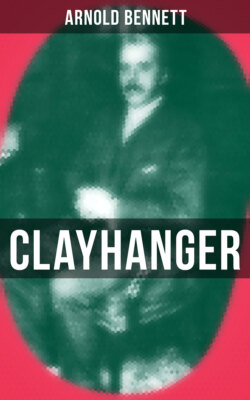Читать книгу CLAYHANGER - Arnold Bennett - Страница 76
На сайте Литреса книга снята с продажи.
Five.
ОглавлениеThe next morning, in the printing office, Edwin came upon Big James giving a lesson in composing to the younger apprentice, who in theory had ‘learned his cases.’ Big James held the composing stick in his great left hand, like a match-box, and with his great right thumb and index picked letter after letter from the case, very slowly in order to display the movement, and dropped them into the stick. In his mild, resonant tones he explained that each letter must be picked up unfalteringly in a particular way, so that it would drop face upward into the stick without any intermediate manipulation. And he explained also that the left hand must be held so that the right hand would have to travel to and fro as little as possible. He was revealing the basic mysteries of his craft, and was happy, making the while the broad series of stock pleasantries which have probably been current in composing rooms since printing was invented. Then he was silent, working more and more quickly, till his right hand could scarcely be followed in its twinklings, and the face of the apprentice duly spread in marvel, When the line was finished he drew out the rule, clapped it down on the top of the last row of letters, and gave the composing stick to the apprentice to essay.
The apprentice began to compose with his feet, his shoulders, his mouth, his eyebrows—with all his body except his hands, which nevertheless travelled spaciously far and wide.
“It’s not in seven year, nor in seventy, as you’ll learn, young son of a gun!” said Big James.
And, having unsettled the youth to his foundations with a bland thwack across the head, he resumed the composing stick and began again the exposition of the unique smooth movement which is the root of rapid type-setting.
“Here!” said Big James, when the apprentice had behaved worse than ever. “Us’ll ask Mr Edwin to have a go. Us’ll see what he’ll do.”
And Edwin, sheepish, had to comply. He was in pride bound to surpass the apprentice, and did so.
“There!” said Big James. “What did I tell ye?” He seemed to imply a prophecy that, because Edwin had saved the printing office from destruction two days previously, he would necessarily prove to be a born compositor.
The apprentice deferentially sniggered, and Edwin smiled modestly and awkwardly and departed without having accomplished what he had come to do.
By his own act of cool, nonchalant, unconsidered courage in a crisis, he had, it seemed, definitely proved himself to possess a special aptitude in all branches of the business of printer and stationer. Everybody assumed it. Everybody was pleased. Everybody saw that Providence had been kind to Darius and to his son. The fathers of the town, and the mothers, who liked Edwin’s complexion and fair hair, told each other that not every parent was so fortunate as Mr Clayhanger, and what a blessing it was that the old breed was not after all dying out in those newfangled days. Edwin could not escape from the universal assumption. He felt it round him as a net which somehow he had to cut.
